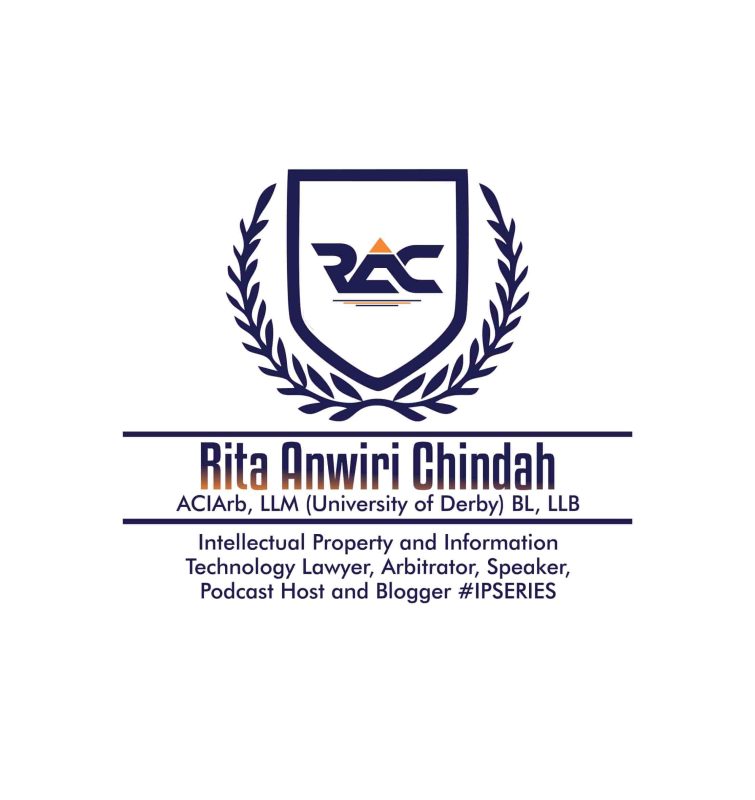 In an era of technology, fourth industrial revolution (4IR) and digitization, it’s been said that the internet has given users a voice so much so that geographical location is not a hinderance for communication, networking and building empires.
In an era of technology, fourth industrial revolution (4IR) and digitization, it’s been said that the internet has given users a voice so much so that geographical location is not a hinderance for communication, networking and building empires.
Intellectual property is seen as the bedrock of every industry and its importance in the digital era can not be overemphasize but this is saddled with ease of reproduction of intellectual property with little or no respect to inspiration or outright copying of creative and or inventive elements of a business.
Boundaries between a variety of intellectual property (IP) protection regimes are blurry from Industrial designs may intertwine with trademark and copyright protection; software may fall under copyright, but also under the patent regime[1] depending on the territory. Disputes are also bound to arise in any relationship especially in the digital space where anonymity is the order of the day; it has now become a growing trend for intellectual property owners to run to the “public court” of the internet to seek for justice and enforce their intellectual property right than seek legal counsel from their lawyer.
This articles seeks to shed light on intellectual property rights that exist in the digital and reason why intellectual property owners, especially in Nigeria, would prefer a social media call out over opting to settle intellectual property related dispute via litigation (court, in this case the Federal High Court) or explore alternative dispute resolution mechanism such as mediation, arbitration, or negation.
 What is intellectual property
What is intellectual property
The long and short of an intellectual property is: it is an intangible asset in the form of creative and innovative elements which gives the owner exclusive right to commercially explore and exploit, legal backing and territorial protection as a trademark (name, word, logo, sign, symbols, smell, colour), copyright (literary and artistic work), patent (new invention that cures defect in the society), trade secret (confidential information that gives one company an edge over the other), design rights (visual appearance of a product and the combination of colours) and the unpopular ones which are plant variety (new plants and seeds) and geographical indication (unique origin and characteristic of product).
Intellectual property rights that exist in the digital space
Thanks to the internet and industrial revolution, the internet has made it easy for users to be able to access and interact with different intangible works online which has given several users a mode to reproduce these works because it is available in the public domain or even help in distributing the intangible work to the public.
This has introduced new disputes as a result of new technology and digitalization of intangible assets which include plagiarism, distribution of counterfeit goods via e-commerce platforms through third party sellers and retail stores, unauthorized use of a brands name, logo, unauthorised use of an author, artiste or celebrity name, image & likeness, illegal downloading of songs, movies, pictures, cybersquatting and control of intangible assets in the digital space that are sometimes localized or turns out to be cross border dispute.
Social media call-out
Over the last 10 years social media platforms like Twitter, Facebook, Instagram, and now Clubhouse, has been utilized by aggrieved intellectual property owners who, for one reason or the other, feel that the best way to resolve infringement of intellectual property rights is by going to the social media. The author is of the view that the following are the reason why social media is the first point of call for most intellectual property owners:
- Lack of existing contract
- Lack of intellectual property knowledge as it affects their industry
- No proper intellectual structure in the industry
- Clout aka cry wolf
- An avenue for bloggers to get their headline stories
Why?
- Lack of faith in the judiciary/court system
- A typical case of David v Goliath
- Greed, sympathy, and sentiments from the public
Examples:
Social media call-outs are not peculiar to Nigeria, here is an example:
1. The Living in bondage: Breaking free case where a designer’s (@Louisajlo) work was featured in the sequel of the movie without her knowledge and through a social media call out was paid for the work she had done.
Matters Arising
Issues that may arise from social media call out:
- Damage to the reputation of the person or brand
- Infringement of right to privacy
- Cyberbullying and stalking
- Potential law suit
- Defamation
- Exploitation of the gap in the laws of the land
Conclusion and recommendation
The beauty and importance of the internet should not be taken in bad faith, while I understand the need for intellectual property to act out social media call out is not the best mode for resolving intellectual property dispute despite the success rate of few of the cases that have made it online. The writer is recommending the following:
- A review of the intellectual property law in the various jurisdiction to be fit for purpose;
- The need for a small claims court to be able to tackle dispute that would have spent years to be resolved in court;
- A tailored intellectual property policy for the various industries that interplays with intellectual property;
- Every creator and innovation should learn about the business aspect of the industry that interplays with intellectual property;
- Have a little faith in the judiciary or explore alternative dispute resolution mechanism such as mediation, arbitration and or negotiation;
- The internet is meant to bring us closer to people, aid in networking and connection, take a deep breath before making that post.
[1] EU Copyright Directive: Articles of Concern to Brand Owners – International Trademark Association (inta.org) accessed 17th December 2021 at 17:36 pm WAT
| MORE NEWS | | WRITE FOR OUR NEWSLETTER |








